What Really Happens If You Clean Your Ears With Cotton Swabs, According to Doctors
You could do some serious damage, they warn.
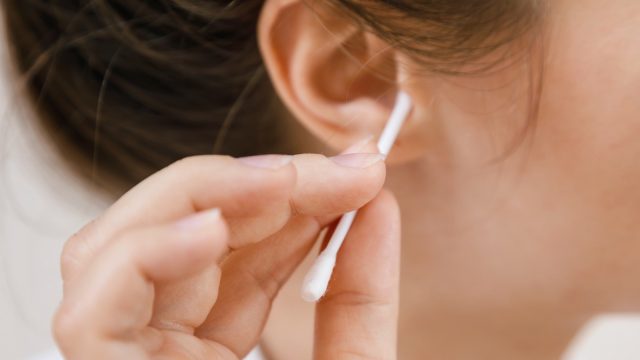
Earwax can be uncomfortable and unsightly, but it serves an important function in your body by helping to protect your ear canals from infection, moisture, injury, and foreign objects. It also helps to clean your ears, explains Amy Sarow, AuD, a Doctor of Audiology and a Forbes Health Advisory Board member.
"The ear is self-cleaning. It works like a natural conveyor belt, pushing wax and debris outward toward the entrance of the ear canal," she tells Best Life. "When we introduce a foreign object like a Q-tip into the ear, several unwanted consequences may occur."
Those consequences, she says, often come in the form of injury, since cotton-tipped swabs can deal serious damage to the eardrum and ear bones. Read on to learn the three things that can happen when you clean your ears with a Q-tip—and what to do instead.
READ THIS NEXT: If You're Over 65, Not Doing This in the Shower Is Causing Hair Loss.
You could push wax further into your ears.
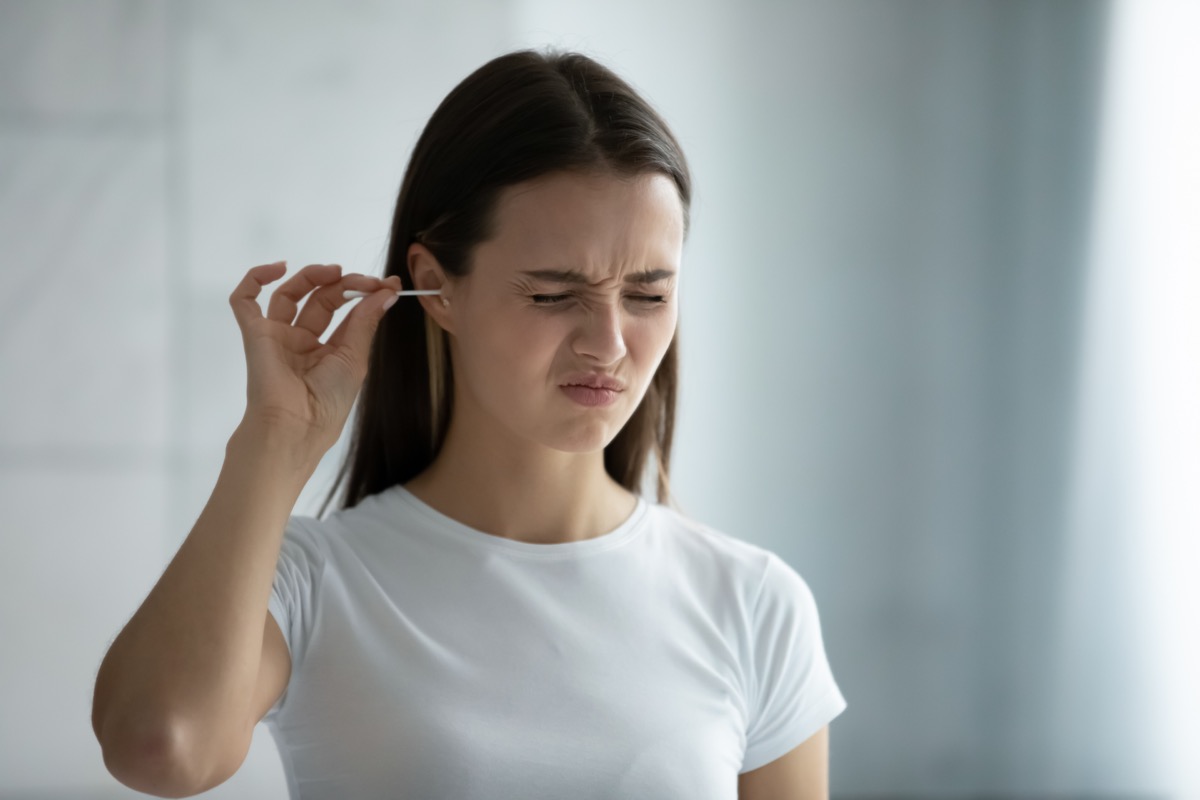
It may seem counterintuitive, but Sarow says cotton swabs often push wax further into your ears rather than removing excess debris. She warns that if you are regularly pushing wax back into the ear canal, "it can accumulate and cause wax impaction."
Impaction is a common problem which occurs when wax builds up in the ear canal. It is especially common in older adults, since earwax tends to become harder in texture as we age, according to Cedars Sinai. Symptoms of wax impaction include hearing loss, earache, dizziness, ringing in the ears, or a feeling of fullness in the ears.
READ THIS NEXT: What Happens If You Don't Shower for a Month, According to Doctors.
You may injure your eardrum.
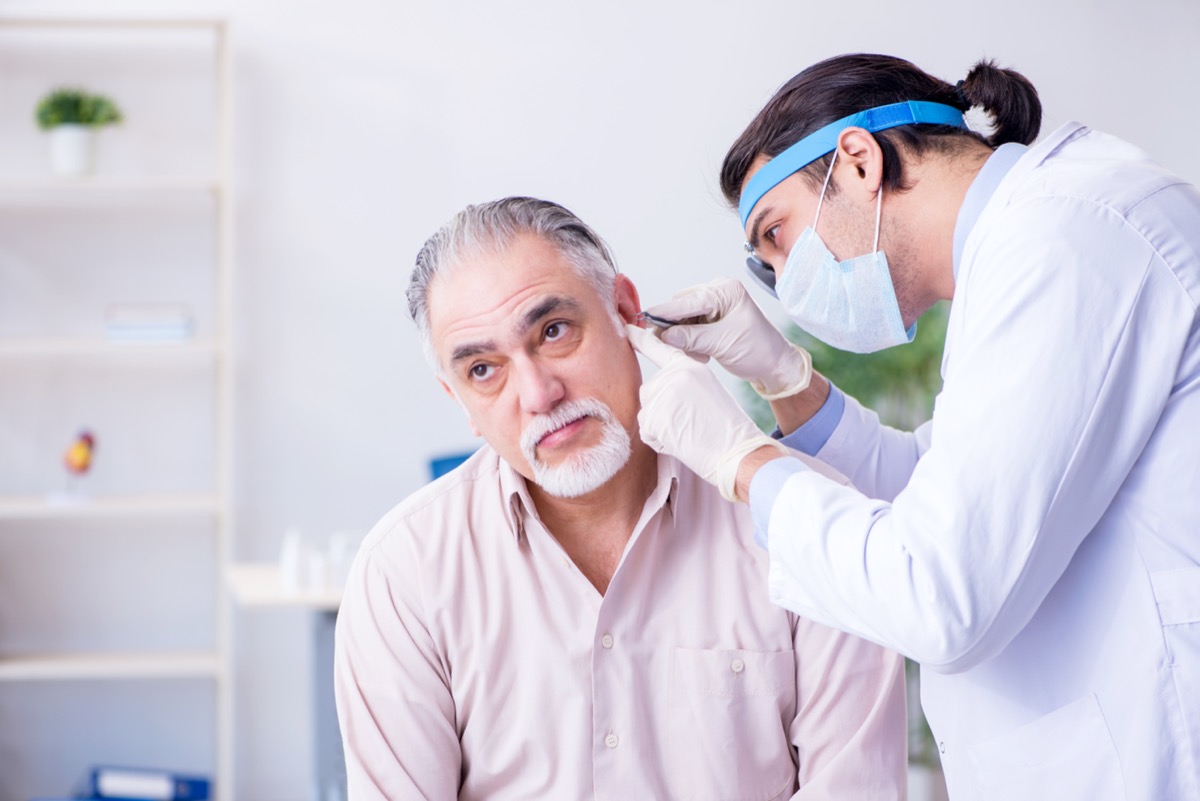
Sarow further warns that cotton swabs are known to cause injuries, especially when used to dig deep into the ear canal. "I've had patients come into the office who were startled while using Q-tips and then accidentally punctured their eardrum," she says.
Oftentimes, patients will clean their ears in anticipation of an appointment with their doctor or hearing specialist, says Sarow. She says this is "usually apparent as evidenced by fresh wounds in their ear canals when examining their ears with an otoscope. Aggressive use of cotton swabs can cause bleeding or irritation, which can lead to infection," the audiologist warns.
Your ears may get itchy.
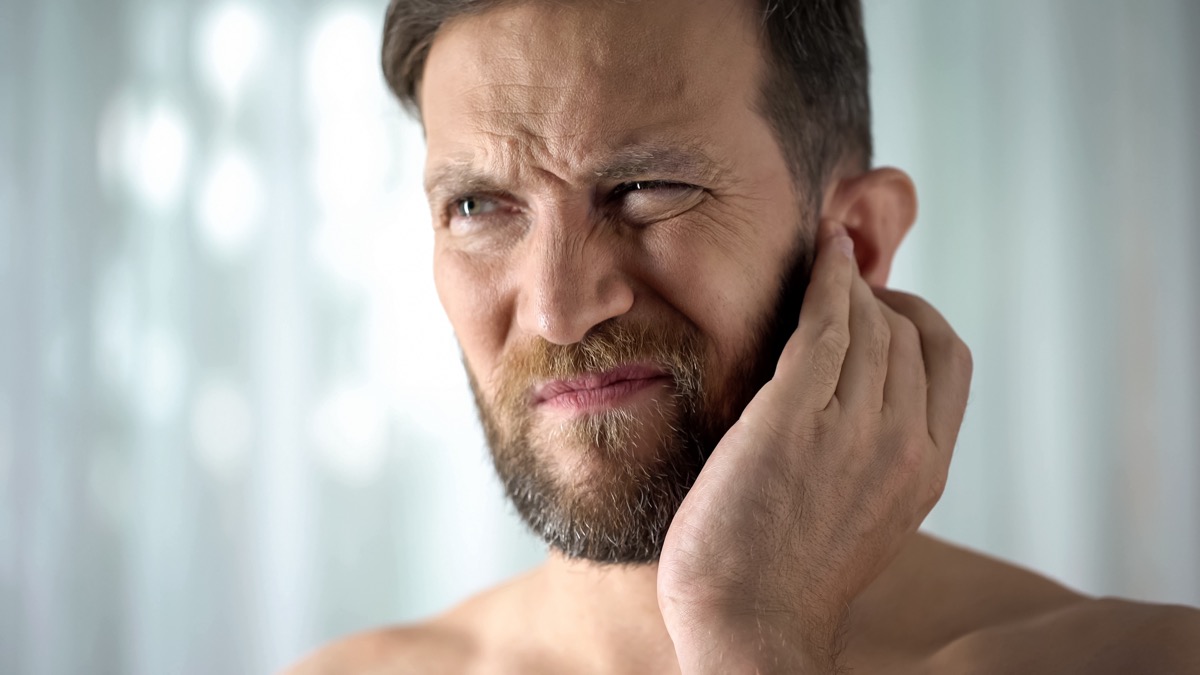
Another common consequence of using cotton swabs to remove earwax is that it can cause itchiness. "Tests have shown that [earwax] has antibacterial and antifungal properties. If your ears don't have enough earwax, they're likely to feel itchy and uncomfortable," explains Harvard Health Publishing.
Sarow notes that usually, having enough wax in your ears is important for preserving the right amount of moisture in the ear canals. "Removing too much wax, or pushing it further down to one concentrated area, can cause dryness and irritation," she warns.
For more health news sent directly to your inbox, sign up for our daily newsletter.
Here's what to do instead.
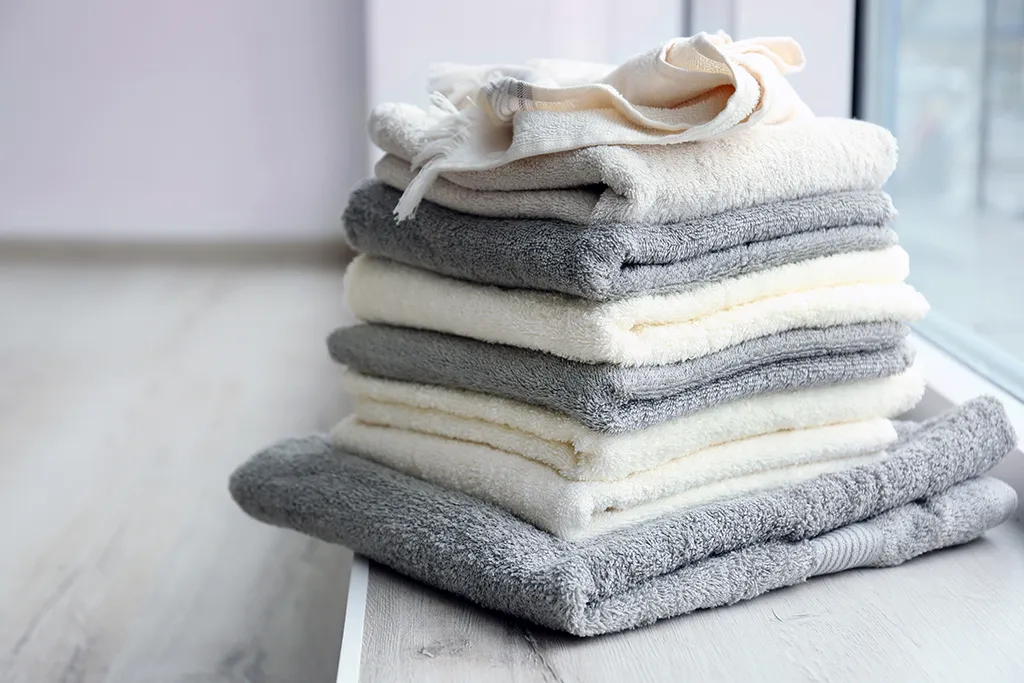
While some experts say it's OK to carefully use a cotton swab to clean the outside of your ears, you should never use them to dig deep inside the ear canal.
Instead, Allergy & ENT Associates recommends a safer alternative: using a wet washcloth. "All you have to do is use a warm and wet washcloth and clean the outside part of your ear," their experts suggest. "Once you are finished, use another washcloth to dry your ears. Using a washcloth for your ears is a good, proactive way to keep your ears clear and help prevent an ear infection."
If after that, excess wax continues to cause discomfort, impaired hearing, or other symptoms, it's time to speak with your doctor.





















